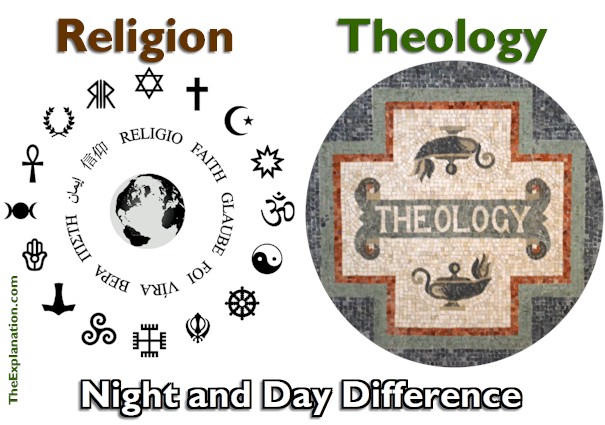Contents
Theology is an alternative to experience, Philosophy, Science, and Religion, for leading us to Peace and Prosperity.

Is Theology—An alternative to Experience, Philosophy, Science and Religion
We have to, at least, ask ourselves whether Theology can be an option to find out if it can lead to a better way of life on Earth—and even beyond.
Here’s the situation as I see it now:
I read in a report Le Point, a French magazine, that “worldwide poverty is receding—that in the last few years it has dropped from 25% of the world population to just 10%.” Now, that’s wonderful, but what is the benchmark for poverty? Earning $1.90 per day!! Yes, that gets two exclamation marks. In our Western world, that sum of money is ludicrous, $57 a month.
(Origin of the Universe chapter 1.1)
That financial calculation of poverty is fictitious–if you earn $2 a day, you’re not impoverished anymore. Welcome to a life where you have enough to live and eat reasonably well! And here, we’re only talking about financial poverty. What about education, health, housing, and working conditions?
In the final chapter of Audit of the Humankind, I broached the Big Four of humankind’s approaches to life, problem-solving, and decision-making:
- Experience (History, Government, Leadership)
- Philosophy (Human Reasoning)
- Science
- Religion
I concluded that all of these foundational methods for governing this Earth and humankind have yielded results that are mixed and mitigated. As positive, or negative, as we might consider them, or that they might be, and there’s an awful lot of discord right there, these foundations have not brought planet Earth what it’s looking for: peace and prosperity.
Let’s grasp a new perspective
It’s time to open our eyes and take a more in-depth look at reality. I invite you to take a step back from this world and think.
I have no proofs to offer you, no rabbits to pull out of a hat.
I do have a process that I’m going to suggest and develop, starting with this book, Origin of the Universe.
The process involves NONE of the four methods above: No personal experience, no science, no philosophy, and no religion.
So what’s left?
The basis for further discussion to reach The Explanation is: Theology; this is one field we have not discussed yet. Share on XThe basis for further discussion is: Theology. This is one field we have not discussed yet.
Some might think this is akin to religion, but there’s a night-and-day difference between the two. So, let’s, hopefully with an open mind, explore this fifth option.
The first point to be made is a clarification of the term theology. Simply because we might incorporate or confound theology with religion; these are two different babies. Here’s an article that mixes theology and religion rather than separating them.
The Crux of Religion
In Audit of the Humankind (Chapter 8), we saw that there are some 41,000 Christian denominations. They have teachings and practices based on revealed sources. This myriad of religious organizations is rife with schisms, splits, and divergences with innumerable teachings and practices purportedly based on original written and oral inspired works. These sources are used to justify religious rites, traditions, and beliefs.
Frequently what has happened here is that the focus and importance of the practices and beliefs have replaced the emphasis and importance of the source writings which are the crux of theology. Or there’s been misunderstanding over the comprehension of these foundational documents; this is the basis of splinter religions.
The Merriam-Webster dictionary defines religion this way: The belief in a god or a group of gods. An organized system of beliefs, ceremonies, and rules used to worship a god or a group of gods.
The origin of the word religion might surprise you: Middle English (originally in the sense life under monastic vows): from Old French, or from Latin religio(n-) ‘obligation, bond, reverence’, perhaps based on Latin religare ‘to bind.’
Religion and philosophies are powerful forces at work on the minds of human beings. Once a person is captivated by a group’s ideas of what regarding their spiritual practices, the tendency is to stand behind that concept, at all costs. The person uses the source writings and associated arguments to demonstrate the basis for their actions and thoughts.
With 41,000 varieties, it is impossible to generalize as to the motivations and reasons for this plethora of groups. It could be Culture, traditions, the personality of a leader, the persuasiveness and persistence of arguments, the peaceful ambiance, or individual preference. People are drawn to or away from these groups. The sheer multitude of such Christian denominations stands as a stark reminder that Christians find themselves obligated by their comprehension of doctrine, bound by particular practices, revering their concept of Christ.
What is true of Christianity is valid for the multitudinous splinters in religious and philosophical groups worldwide.
We have to get back to the foundation and the basics: Theology.
This blog post is an excerpt from chapter 1.1 of Origin of the Universe
Dig Deeper into The Explanation
Online Study Courses to Uncover the Mystery of Adam and Eve’s Nakedness… with no fuss. Free video mini-course revealing the God-intended meaning of Scripture via Biblical Hebrew. It’s so easy, it’ll blow you away. Join now and add new motivation to your Bible study.
Join The Explanation Newsletter to stay informed of updates. and future events. No obligations, total privacy, unsubscribe anytime, if you want.
The Explanation series of seven books. Free to read online or purchase these valuable commentaries on Genesis 1-3 from your favorite book outlet. E-book and paperback formats are available. Use this link to see the details of each book and buy from your favorite store.

Since you read all the way to here… you liked it. Please use the Social Network links just below to share this information from The Explanation, Into Theology, a Fifth Approach to Life with Peace and Prosperity



Trackbacks/Pingbacks